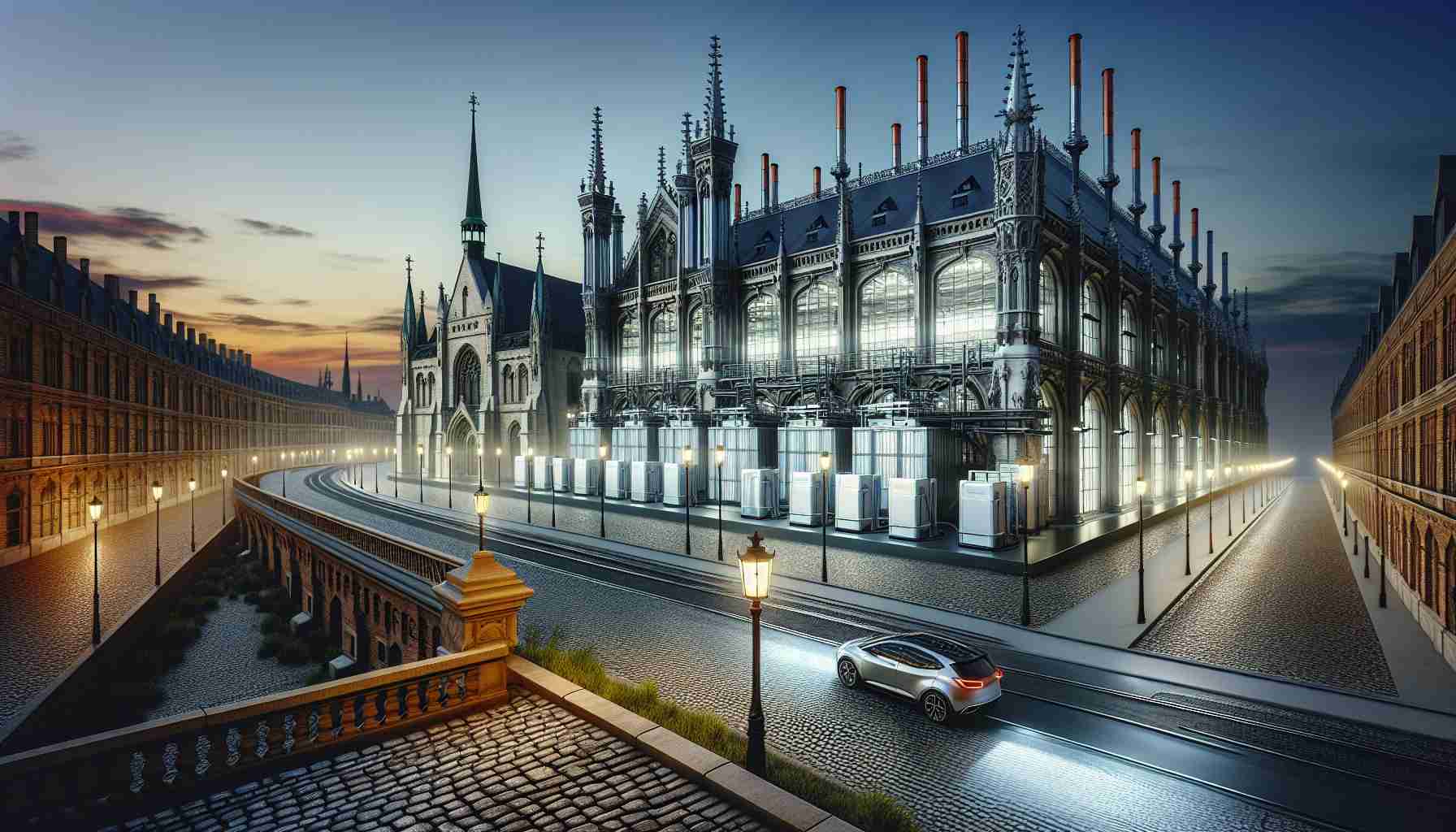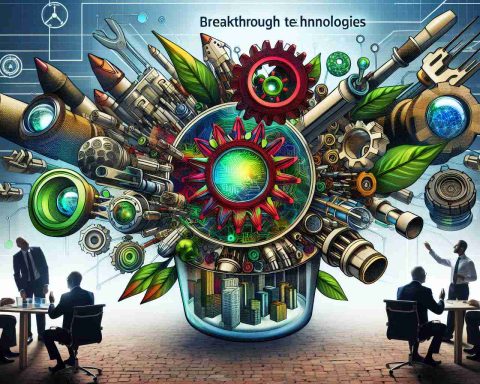The Transformation of De Soto, Kansas
The new electric vehicle (EV) battery plant being developed by Panasonic stands on land rich with history. This 3,000-acre site was once home to the Sunflower Army Ammunition Plant, which operated from the 1940s until the 1990s and was once the nation’s largest smokeless ammunition facility. During World War II, the plant employed thousands of workers, significantly contributing to efforts on the home front.
A local museum curator highlights the strategic choice of De Soto for the plant’s location, noting its seclusion made it less vulnerable to sabotage, with convenient access to critical transportation routes. At its height, the facility employed over 12,000 individuals, a large portion of whom were women who filled roles left vacant by men deployed to war. This workforce shift not only was critical for the war effort but also catalyzed immense population growth in Johnson County, which transformed from 33,000 residents to over 143,000 in just twenty years.
As Panasonic establishes its presence, longtime residents reflect on the lasting impact of this historic site, including the iconic water towers that symbolize the area’s industrial heritage. One county official recalls working summers at the ammunition plant, linking generations of workers.
Today, the plant’s legacy intertwines with the promise of innovation, paving the way for Johnson County’s future as a hub for sustainable technology and employment.
The Broader Implications of De Soto’s Transformation
The establishment of the new electric vehicle battery plant by Panasonic in De Soto, Kansas, represents more than a significant economic development project; it signals a paradigm shift in the regional and national response to climate change and energy independence. As the world increasingly turns towards sustainable solutions, the location of this plant on a former military site highlights a growing trend where historical landscapes are repurposed for modern technological needs, ultimately fostering a new identity for communities once shaped by industrial activity.
From a cultural perspective, this transition mirrors a broader societal shift towards environmental consciousness. The integration of green technology in manufacturing not only creates new employment opportunities but also aligns with the aspirations of younger generations, who are increasingly prioritizing sustainability in their career choices. As the workforce expands, so too does the potential for innovation in the automotive and energy sectors, representing a critical juncture for the U.S. in the global race for leadership in electric vehicle technology.
Furthermore, the environmental implications are profound. The push for electric vehicles aims to significantly reduce carbon emissions, contributing to long-term climate goals. As more such plants arise across the Midwest, there is potential for a ripple effect—an economic boon that promotes sustainable practices among local suppliers while simultaneously revitalizing areas once defined by traditional manufacturing.
In conclusion, the Panasonic plant’s development in De Soto serves as a litmus test for the intersection of history, culture, and environmental stewardship, hinting at a future where industries are not only economically viable but also aligned with a sustainable ethos.
Revitalizing Heritage: De Soto’s Journey to the Future with Panasonic’s EV Battery Plant
The Transformation of De Soto, Kansas
De Soto, Kansas is undergoing a significant transformation as Panasonic develops a new electric vehicle (EV) battery plant on a historically rich site. This 3,000-acre area, once home to the Sunflower Army Ammunition Plant, is preparing to embark on a new chapter that blends its storied past with cutting-edge technology.
# Historical Significance
The Sunflower Army Ammunition Plant was operational from the 1940s until the 1990s, playing a crucial role during World War II as the nation’s largest smokeless ammunition facility. At its peak, it provided jobs for over 12,000 workers, with a remarkable number of women filling positions traditionally held by men deployed to war. This shift not only contributed to the war effort but also prompted explosive growth in the local population, elevating Johnson County’s numbers from 33,000 to over 143,000 residents in just two decades.
# Panasonic’s Vision
As Panasonic establishes its EV battery production plant, it aims to create thousands of new jobs, further boosting the local economy. The company’s commitment to sustainable technology aligns with broader trends in the automotive industry, as electric vehicle adoption continues to rise. Analysts expect the demand for EV batteries to increase significantly in the upcoming years, driven by environmental concerns and advancements in battery technology.
# Economic Impact and Job Creation
The selection of De Soto for this plant is strategic not only for its historical context but also for its logistical advantages. The area’s infrastructure facilitates easy transportation of goods, essential for a manufacturing hub. The creation of thousands of jobs will offer opportunities for local residents and attract skilled workers from outside the region.
# Pros and Cons of the New Development
Pros:
– Job Creation: Thousands of new employment opportunities will arise from the facility’s operation.
– Economic Boost: Increased investment in the region will enhance local businesses and service industries.
– Sustainability: The plant supports the transition to cleaner energy through EV manufacturing.
Cons:
– Environmental Concerns: While the plant aims to be sustainable, large-scale industrial operations can sometimes lead to ecological disruption.
– Community Displacement: Rapid industrialization can strain local resources and services, potentially affecting existing residents.
# Community Reflection and Future Outlook
Longtime residents of De Soto are witnessing a renaissance as they reflect on the historic significance of the site. The iconic water towers of the old plant stand as a testament to the region’s industrial past. County officials and local historians recognize the importance of preserving this history while welcoming the innovations brought by Panasonic.
# Trends in Electric Vehicle Industry
The electric vehicle sector is poised for explosive growth, with projections indicating that by 2030, electric vehicles will constitute a considerable percentage of new car sales globally. This shift not only reflects changing consumer preferences but also a push from governments for cleaner energy solutions. Panasonic’s investment is a strategic move within this burgeoning market.
# Conclusion
De Soto’s evolution, spearheaded by Panasonic’s new EV battery plant, symbolizes a blend of historical legacy and future innovation. As the region prepares for a sustainable technological uplift, it remains a community that honors its past while embracing the promise of what lies ahead.
For more insights about technological developments and their impact on local economies, visit Panasonic.



















